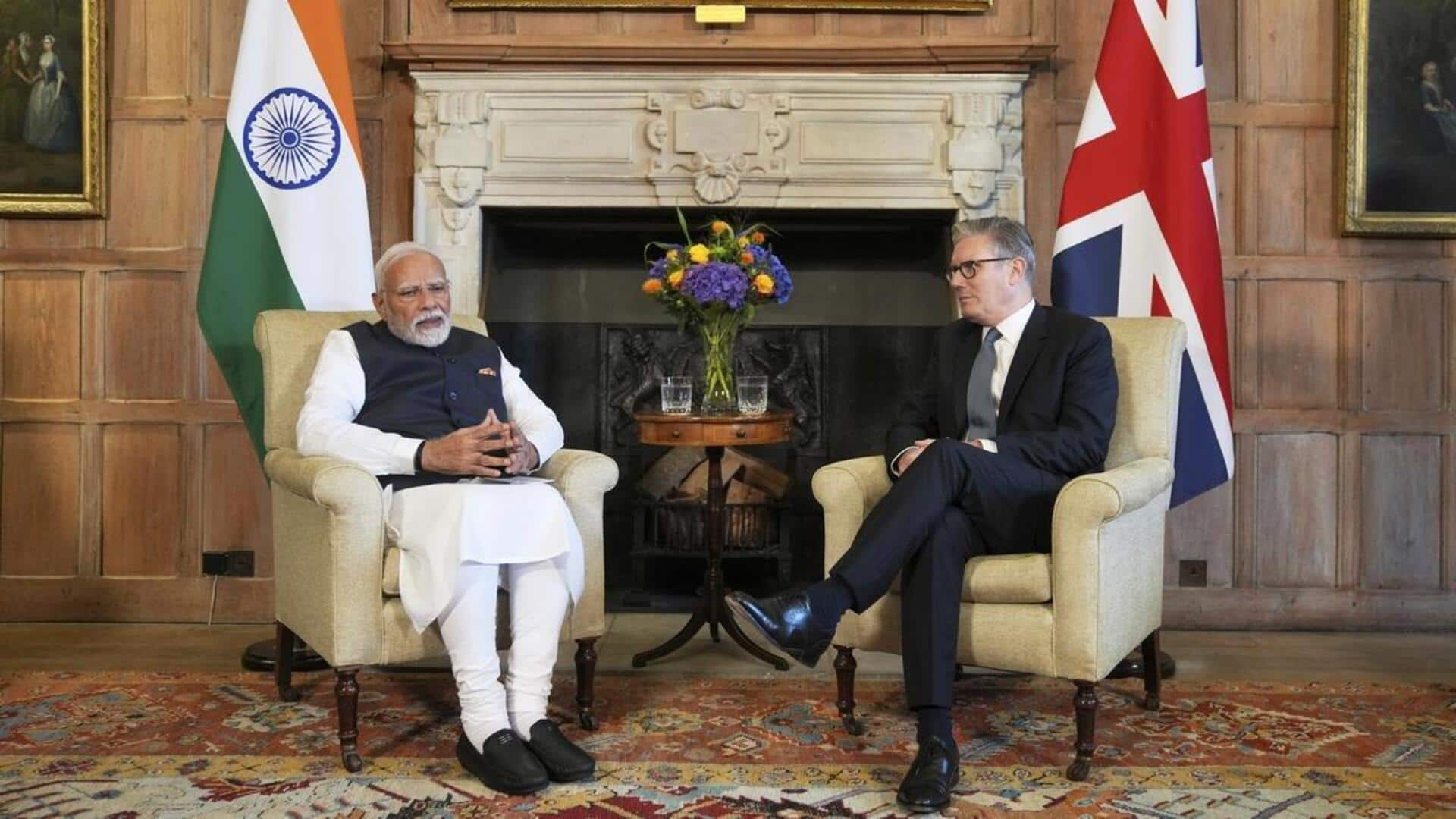
How Indian farmers will benefit from India-UK free trade pact
What's the story
India and the United Kingdom inked their long-awaited Free Trade Agreement on Thursday, which will boost bilateral trade by roughly $34 billion annually. In particular, the FTA is expected to benefit Indian farmers significantly. The deal is a comprehensive economic and trade agreement that removes tariffs on around 95% of agricultural and processed food products. This development opens up premium UK markets for Indian produce, giving them an edge over exporters from Germany, the Netherlands, and other European Union countries.
Market access
Tariff elimination under deal to make Indian products more competitive
Currently, the UK imports $811 million worth of agricultural produce from India. With the FTA in place, this figure is expected to rise as high-value markets like Britain are opened up for niche Indian products such as tea, mangoes, grapes and spices. The agreement also creates opportunities for new and emerging products such as jackfruit, millets, vegetables, and organic herbs, helping farmers to diversify and better handle local price fluctuations.
Seafood growth
Boost to fisheries sector; diversification of Indian agriculture
The FTA is also expected to give a boost to India's fisheries sector by providing zero-duty access for 99% of exports such as shrimp, tuna and fishmeal. These food currently face duties between 4.2 and 8.5%. This is likely to unlock rapid growth in India's seafood exports, with the UK's marine import market offering a huge opportunity for expansion.
Export growth
Agricultural exports expected to grow over 20% in 3 years
India's agricultural exports to the UK are expected to grow by over 20% in three years due to duty-free access. This will help India achieve its target of $100 billion in agri-exports by 2030. However, sensitive sectors such as dairy products and edible oils have been excluded from tariff concessions under the deal to protect domestic farmers.
Tariff reduction
Deal reduces tariffs on UK products in India
The FTA will also reduce tariffs on UK products in India from 15% to 3%. British whisky producers will see their tariffs slashed from 150% to 75% and then further reduced to 40% over the next decade. This gives British companies an edge over international competitors when selling products such as soft drinks and medical devices in India.
Economic growth
FTA expected to increase bilateral trade by nearly 39%
The FTA is expected to increase bilateral trade by nearly 39% in the long run, adding €25.5 billion a year to projected levels of trade by 2040. The deal will also create over 2,200 British jobs and drive economic growth across sectors such as aerospace and technology. The trade deal aims to eliminate or cut tariffs on imports and exports between the two countries. Both countries aim to grow their trade to $120 billion by 2030.